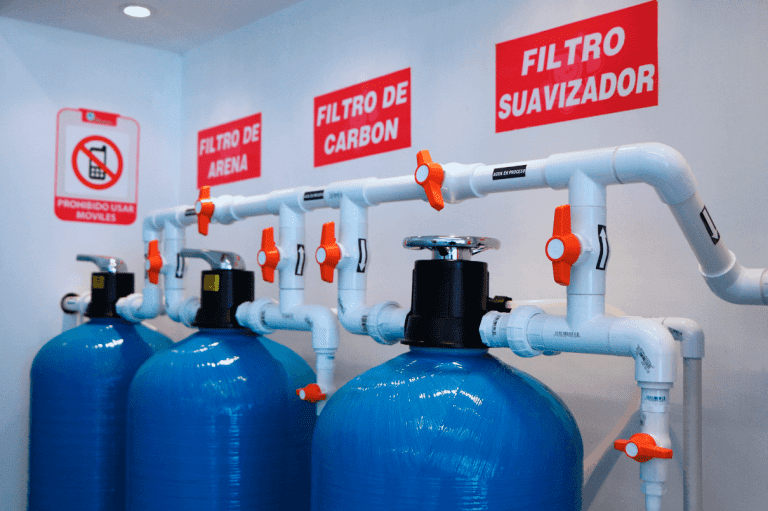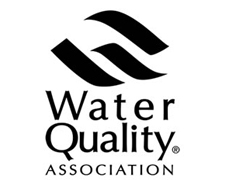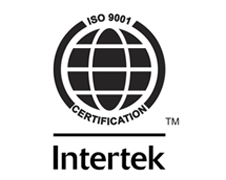5 THINGS YOU SHOULD KNOW ABOUT WATER PURIFYING PLANTS IF YOU PLAN TO ACQUIRE A
PURIFYING PLANTS
If you are interested in joining the profitable business of water purification plants it is very important that you inform yourself perfectly about everything that this business entails, so that you can offer water that is extremely reliable and that has the best quality standards.
It will be vitally important that you follow all the points that must be carried out before, during and after the purification process if you want your business to be successful.
1. ABOUT WATER
The first thing you need to know is that this process varies depending on the characteristics of the water you select to purify. That's right, not all water has the same properties, and therefore not everyone is able to be purified. The water you use must comply with the degree of potability established in rule 127 of the Ministry of Health, which specifies the maximum permissible physical, chemical and microbiological limits that the water that will be destined for human consumption must have; being a little more precise we refer to the concentration of salts and minerals that exist in it and that determine whether the water is heavy or light.
2. WHAT IS THE DIFFERENCE BETWEEN HEAVY WATER AND LIGHT WATER?
Heavy water requires a slightly more extensive purification process, it is necessary to pass more filters to decrease the levels of mineral salts, unlike water that is considered light, which with a simpler purification process is sufficient to be completely purified.
It is essential that before acquiring a water purification plant, ask for the advice of an expert to help you determine the levels of mineral salts that the water has that you will commercialize since, based on this information you will define the type of plant that you will need to acquire To start your business.
 “Purifying plants.”
“Purifying plants.”
3. ELEMENTS OF WATER PURIFYING PLANTS
Once you select what type of plant you will need, you should know each of the pieces that make it up, and of course, the function they play in the process.
- Water tank:Stores the water that will be purified.
- Purified water tank: Stores water that has been treated by osmosis.
- Pressurizing pump: Detects the presence and absence of water, is the engine of the plant.
- Sand filter: Retains solid waste suspended in water.
- Activated carbon filter: Eliminates organic pollutants.
- Softener filter: Retains calcium and magnesium ions (tartar).
- Polishing filters: Eliminates solid elements suspended in the water.
- Reverse osmosis: Eliminates total dissolved solids through a membrane.
- Ultraviolet lamp: Discards the possibility of bacterial or viral proliferation.
- Washing table: Sanitation place of the carboys.
- Filling table: Bottle filling device.
- Carboy planer: Equipment used for the correct disinfection of the carboys.
4. PURIFICATION PROCESS
DISINFECTION
In order for the water to be completely disinfected, it must be submitted to 3 disinfection processes:
- The first of these is chlorination, which consists of adding a specific amount of chlorine to the water that is stored in the raw water tank, in order to inhibit the growth of microbiological organisms in it.
- The second step is known as "ozonation" and involves adding a controlled amount of ozone to the raw water tank and thus preventing any type of bacteria, microbe or virus from developing. In addition, it helps prolong the life of the water.
- These two steps are the first that must be executed in the purification process, and the last but not least important is the "ultraviolet light lamp". This method is executed at the end of any purification process because it has the ability to kill bacteria by 99.99% and serves as protection in case any microorganism survives after the entire purification process.
FILTRATION PROCESSES
The first filter through which the water must pass is the “Sand Filter” this in order to retain the impurities that may exist in the raw water, then the water must be treated by the “Carbon Filter” to eliminate the smell , color, flavor and residual chlorine.
The next filter in the purification process is the “Softener Filter”, which is formed by resin beads that have the ability to retain calcium and magnesium molecules in order to reduce hardness in water. It should be noted that not all purifying plants need this filter, which is why it is essential that you know the properties of the water you intend to purify before you acquire your plant.
The following filters through which the water must pass are the “Polishing filters”. As the name says, these filters are responsible for polishing the water until it is completely crystalline, retaining all particles measuring between 25 and 5 microns. These filters are intended to remove the greatest number of impurities in the water to protect the next process called “reverse osmosis.” This system causes water to pass through a semipermeable membrane that is capable of removing up to 99.5% of dissolved solids, which allows the water obtained after this filter to be lighter because it regulates the amount of salts , metals and minerals present in water.
Finally, the water must be exposed to UV radiation in order to ensure complete sterilization of the processed water.
While the purification process is in progress, it is advisable to optimize the time, that the person in charge of the plant sanitizes the bottle where the purified water will be stored using the bottle brush. Subsequently, you must go to the washing table and with a specific measure of biodegradable germicidal soap food grade should wash the bottle properly to avoid cross contamination. Once this process is finished, it is time to deposit the 100% purified water in the consumer's bottle or pet bottle.
Now you know a little more about the operation of a water purification plant and the first thing you need to do if you want to acquire one.
5. WHERE CAN I FIND AN EXPERT TO ADVISE ME IN THIS PROCESS?
In agua inmaculada you will find all the attention you will need to start your own business because, it is the only company in the field that has its own laboratory that guides you before purchasing purification plants. You can have the guarantee that the result you will get from your water analysis will be the most accurate, since by dedicating yourself solely and exclusively to studies related to water, the possibility of contamination in the analysis process that alters the results decreases.
In addition, not only is it responsible for determining the hardness of the water and indicating which is the most favorable plant for customers, but also fulfills the function of performing the physicochemical and microbiological analyzes that will allow you to constantly corroborate the quality of the product that you will offer to your customers.
If you are interested in knowing a little more about the benefits you get when you buy your water purification plant with us, go to our website: www.aguainmaculada.com or call us at 01 800 632 0460 for a business advisor to provide you with all the information you will need to start your own business today.

 “Purifying plants.”
“Purifying plants.”














